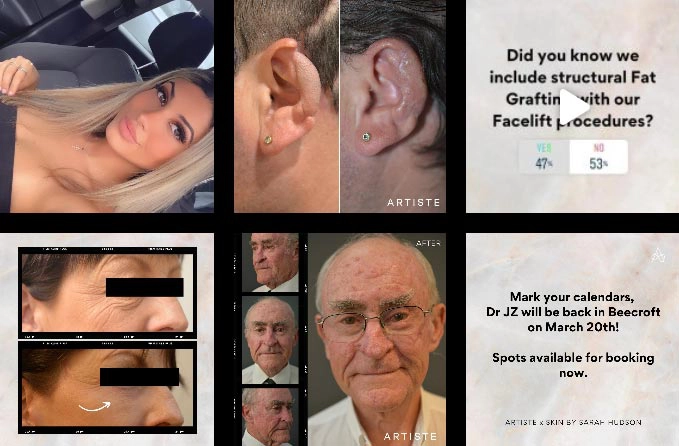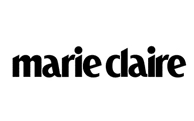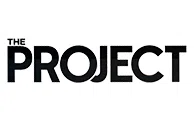Eyelid Surgery Aftercare Tips
Model featured in photography
Recovering from eyelid surgery is an important phase that requires proper care to support healing. While following recommended aftercare can assist in managing discomfort and maintaining eye health, it’s important to know that individual outcomes vary. In this blog, we’ll share general aftercare tips to help guide you through the post-operative period. Always follow your surgeon’s specific advice for the best to ensure the best approach for your individual circumstances and realistic expectations.
What to Expect After Eyelid Surgery?
While individual experiences may vary, the following are common observations after blepharoplasty:
- Swelling and Bruising: This is a natural part of the healing process after an eyelid surgery, and may peak in the first few days, gradually subsiding over the next few weeks. Some patients may also feel some tightness around the eyes due to swelling.
- Mild Discomfort or Pain: Mild pain, tenderness, or discomfort around the surgical site is normal in the initial days. Your surgeon may prescribe pain relievers to manage this. The discomfort usually may diminish after the first few days.
- Temporary Blurred Vision: This may occur after surgery, often due to swelling or ointments applied to the eyes. It may improve as the swelling decreases, but it’s important to follow your surgeon’s guidance on eye care and avoid activities that may strain your eyes.
- Sensitivity to Light: Some may experience sensitivity to light for a few days after surgery. Wearing sunglasses when outdoors may help protect your eyes and reduce discomfort from bright light. Consult your surgeon for personalised advice.
- Watery or Dry Eyes: Some patients may notice increased tear production or dry eyes after surgery. Depending on your surgeon’s advice, this may be managed with prescribed eye drops or lubricating ointments.
- Stitches and Bandages: Depending on the type of eyelid surgery, you may have stitches that will need to be removed within a week, or dissolvable stitches that will disappear on their own. Your surgeon will advise you on when to return for a follow-up appointment.
Recovery Time
Recovery time after eyelid surgery varies for each individual and depends on multiple factors, including overall health and the specifics of the procedure. Depending on each patient’s unique situation, initial healing might take around two to three weeks, with some experiencing swelling or bruising during the first week that typically subsides over time.
It’s important to remember that recovery varies for every individual. Always follow your surgeon’s personalised care instructions and attend follow-up appointments to monitor your progress and recovery.
How to Take Care of Yourself at Home: General Post-Operative Tips
Proper care at home following eyelid surgery is essential to support healing and minimise potential complications. While every individual’s recovery process is unique, the following general tips may give you an overview about the post-surgery care. Always consult with your healthcare provider for specific instructions tailored to your needs.
1. Follow your surgeon’s instructions: This may include guidance on cleaning the surgical site, managing pain, and using medications. Keeping communication open with your healthcare provider is crucial to support the recovery.
2. Keep your head elevated: To help reduce swelling, you may keep your head elevated, even while sleeping. You may opt to use extra pillows to prop yourself up, as this helps fluid drain away from the surgical area and minimises puffiness.
3. Apply a cold compress, if advised: If your surgeon recommends it, applying a cold compress during the first 48 hours may help manage swelling and bruising. Avoid placing ice directly on the skin—use a soft cloth or cold pack as instructed. Always follow your surgeon’s advice regarding cold compress use.
4. Avoid straining your eyes: Limit activities that may strain your eyes, such as reading, using a computer, or watching TV, especially in the first few days post-surgery. Resting your eyes may help prevent additional swelling and support healing.
5. Use prescribed medications: If your surgeon prescribes pain relievers, antibiotics, or eye drops, make sure to use them as directed. These medications may help manage pain, prevent infection, and keep your eyes lubricated.
6. Be gentle with cleaning: Keep the surgical area clean and avoid rubbing or applying pressure to your eyes. Use a clean, damp cloth to gently wipe around the area, following your surgeon’s instructions on cleaning techniques. Avoid exposing the area to soap, shampoo, or makeup during the healing process.
7. Avoid vigorous activity: Refrain from heavy lifting, strenuous exercise, or bending over, as these activities can increase blood flow to the face and may cause additional swelling or bleeding. Rest is essential for recovery and it’s best to take it easy and give your body time to heal.
8. Protect your eyes from the sun: Use sunglasses to shield your eyes from UV rays and reduce light sensitivity when outdoors. A wide-brimmed hat may provide added protection for sensitive skin.
9. Avoid smoking and alcohol: Smoking and alcohol can slow the healing process and increase the risk of complications. It’s advisable to avoid both before and after your surgery to support recovery.
10. Attend all follow-up appointments: Your follow-up visits with your surgeon are important to monitor your healing progress. If you notice any signs of infection, unusual pain, or other concerning symptoms, contact your doctor immediately.
Important Note: These tips are general in nature and not a substitute for personalised advice. Always prioritise the recommendations of your healthcare provider for the best recovery experience.
Proper aftercare plays a crucial role in supporting a smooth recovery after an eyelid surgery. By following your healthcare provider’s recommendations, you can help minimise potential complications. Remember, each person’s healing journey is unique, so maintaining open communication with your surgeon is essential.
Disclaimer: At Artiste Plastic Surgery, our Plastic Surgeons led by Dr Jack Zoumaras have been trained to the highest possible degree. All surgery has risks and it is always advised to get a second opinion. Risks are very real and we cannot guarantee any result. Results are illustrated as a guide only. All risks are managed and any need for revision surgery or complications (1-5%) can be managed by our specialist plastic surgeons.
Any statements on how you will feel is based on Level V Evidence:
Level V: How you will feel after plastic surgery varies between individuals, depending on psychological and physical factors. Our internal research is based on how patients in our practice feel after surgery.
The blogs are not a substitute for a medical consultation and do not form as part of the doctor to patient relationship.
SHARE THIS ARTICLE
Jul01
Facelift Recovery Tips: What Speeds Up Healing and What to Avoid
Disclaimer: At Artiste Plastic Surgery, our Plastic Surgeons led by Dr Jack Zoumaras have been trained to the highest possible degree. All surgery has risks and it is always advised ...
Jul01
How to Prepare for Facelift Surgery: What to Do Before Your Big Day
Disclaimer: At Artiste Plastic Surgery, our Plastic Surgeons led by Dr Jack Zoumaras have been trained to the highest possible degree. All surgery has risks and it is always advised ...
ABOUT ARTISTE
Artiste Plastic Surgery is an Award Winning Specialist Plastic Surgery practice led by internationally trained Dr. Jack Zoumaras, Plastic Surgeon and Peer Reviewed Face Surgeon
Artiste offers the latest Cosmetic Surgical Procedures of the Face, Breast and Body, inspired from leading centres around the world.
STAY IN THE LOOP
Enter your email address below to receive updates on new articles and VIP access to promotions and special offers.
FOLLOW US ON INSTAGRAM










